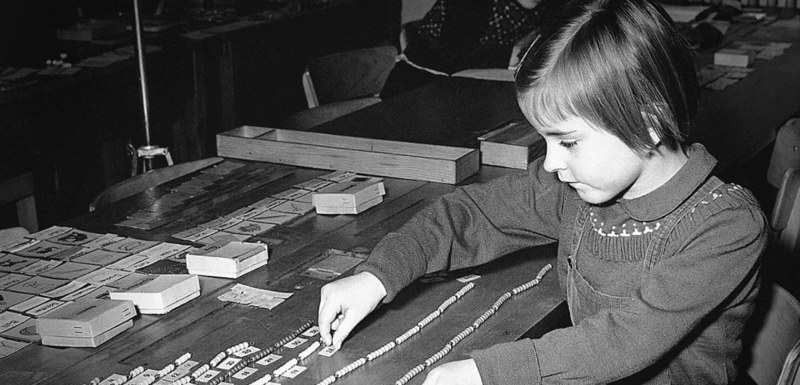Early Childhood Montessori Guide Certification (2.5-6 Years Old)

EARLY CHILDHOOD [2½ THROUGH 6] PROGRAM DESCRIPTION:
Montessori Academy Training Institute’s Montessori Early Childhood Program is designed to prepare graduates to enter
the dynamic field of Montessori education as skilled teachers of children aged 2½-6 years old. The program developed at
MATI is based upon the principle that developing a skilled educator requires engaging the head, the hands, and the
heart. The Program involves both academic preparation and experiential learning through hands-on practice. An
extensive field practicum allows students to acquire valuable working experience. Montessori principles of learning are
imbedded in the curriculum delivery. Students are encouraged to explore, question and experiment in their quest to
understand the philosophical foundations of the Montessori Method. Small class size and low professor/student
[maximum of 1:10] ratio helps foster a supportive environment in which critical thinking, creativity, and reflection are
encouraged.
Academic Phase [319 hours]
Montessori Philosophy [6.2.5.8] [43 hours – includes an additional Peace Education seminar of 8
hours] – Dr. Maria Montessori’s philosophy and educational theories are examined in depth. A timeline of
Dr. Montessori’s life and work is carefully studied.
Child Development / Psychology [6.2.5.10] [35 hours] – Early childhood is emphasized with a focus on
cognitive, moral, personal, social and physical development.
Mathematics [6.2.5.4] [35 hours] – The Mathematics course introduces the child to the logical progression
from the concrete to the abstract emphasizing from numeration through the decimal system.
Language [6.2.5.3] [35 hours] – Facilitating language development is an integral part of Montessori teacher
training. The language curriculum provides a scientific and well-planned order that ensures the child’s
success in reading, writing and self-expression.
Practical Life [6.2.5.1] [35 hours] – The Practical Life curriculum emphasizes exercises that establish the
order, coordination, concentration and independence necessary to the child’s motor and intellectual
development. Purposeful activities and peaceful interactions initiated through Practical life work provide the
child’s foundation in the critical area of self-esteem and citizenship.
Sensorial [6.2.5.2] [35 hours] – Students focus on refining and educating the senses of the 2½ through 6-
year-old child and promoting the joy of discovery through sensory experience.
Cultural Subjects [Total 32 hours] [Physical & Life Science 6.2.5.5 (8 hours), Social Studies 6.2.5.6
(Geography/History 8 hours), Art 6.2.5.11 (8 hours), Music & Movement 6.2.5.11 (8 hours)].
Observation [6.2.5.9] [Total 41 hours – academic content, 8hrs; classroom observations, 16hrs; case study, 17hrs]
Classroom Leadership / Administration [6.2.5.7] [workshop – 12 hours] – An instructional course to aid
in the process of opening and administering a Montessori school.
Practicum Seminar [6.2.5.14] [seminar, 16 hours] – The seminar will help the student discuss any
concern/questions that he/she may have about their on-going practicum phase. The adult learner will have
support available from training instructors and director.
Parent Involvement/Education [6.2.5.13] [seminar included within the Practicum Seminar]
Practicum Phase 6.2.5.13 [Minimum 540 hours]
Students begin their internship/practicum after the academic phase is completed. Practicum placements are no less than
four hours a day, five days per week. Students have the opportunity to integrate the academic knowledge acquired during
the summer academic phase with practical applications as they implement the Montessori Method to support the
development of a group of 2½-6 age children.
Students spend an academic year under the direction of an AMS certified supervising teacher, in an approved Montessori
school of their choice. A MATI field consultant will visit three times during the academic year to observe the student in the
classroom and to provide feedback.
Planning and implementing Montessori curriculum with children under the guidance of the supervising
directress
Preparing indoor and outdoor environments
Observing, recording, planning, assessing and maintaining records
Interacting with parents, staff and children
Designing activities and equipment
Behavior guidance in individual and group situations
